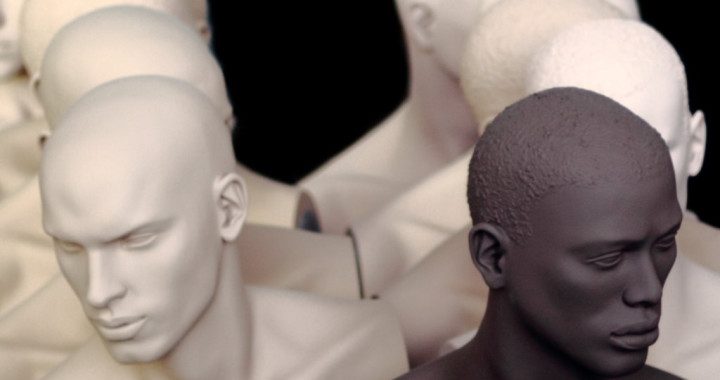Stop and think about it for a moment: In the hit YA books you’ve read recently, how many of them have featured people of color as protagonists? The Hunger Games did not; Katniss, Gale, Peeta, and Haymitch are all awfully white. Rue and some other minor characters seem to be black, but pretty much all of them die.
Divergent features an all-white cast as far as I know. Vampire Academy? Unless you count Moroi, Strigoi, and Dhampir as “racial diversity,” they’re pretty much all of European descent, too. In Twilight, at least we have some Native Americans, but Bella and the Cullens are all whities.
The two main characters in The Fault in Our Stars are white. The great post-apocalyptic trilogy by Mike Mullin, Ashfall, has only a few people of color in all three books; the two main characters (and, obviously, their families) are all white again.
Come to think of it, I can only think of one YA series I’ve read recently that has main characters who are also people of color: The three Legend books star the character Day, who is of mixed white and Mongolian descent. Does Day count? I would say yes, but he still has blond hair and blue eyes.
White People Tend to Write About White People
What’s going on here? Where are all the people of color in these stories? Well, part of it might have to do with the fact that, with the exception of Legend, all of the books I mentioned above were written by white women.
White people tend to write about white people, and since most YA authors are white, most of their protagonists also tend to be white. The result is that most YA books are as whitebred as a ritzy apartheid-era South African neighborhood. To see just how bad it is, take a look at the eye-opening graphs over at Forever Young Adult in this post. While diversity in America and other Western nations is on the rise, diversity in young adult books is actually falling.
Are White Authors Intimidated by Writing About People of Color?
As alluded to above, most YA books are penned by white people. Specifically, by white women. Perhaps part of the reason why they don’t write about people of color is that they feel intimidated to explore the voice of a character who grew up in a different culture or who had different experiences than their own. That’s fair… to an extent. From another point of view, however, it would mean that men would never have a right to write about women and women should never write the voice of a man.
Maybe a better approach is to… do your freakin research. Writing is a balance of creativity and doing your homework. Is it really that impossible to imagine ourself as The Other? Surely it isn’t; people of color have written novels and directed films about whities plenty of times.
Look, I Get It
I’m white. Kind of whiter than I want to be at times. I’m middle class, grew up in the suburbs, blonde hair and blue eyes white.
But I also live in a racially diverse world. A world where we have a President who is half African American, a world where my circle of friends includes people from multiple countries and with multiple skin tones and sexual orientations. I would be embarrassed to show a story I had written to a friend of color and not include anyone who looks like them in it.
Two of the three main characters in my YA fantasy trilogy are mixed race people; Jon has a mother who was half-Korean; Layla had a white father and an African American mother. I also have an African American character, Preston, who’s been wandering around inside my head for a few years and desperately needs a story to call his own.
C’mon YA authors, let’s work together on this one: Let’s write stories that reflect our world, a world that is increasingly diverse and trying ever-so-hard to get to the point where it will one day be post-racial. Maybe we’ll never get there, I don’t know.
But we certainly don’t help matters if we bring the segregation we tried so hard to eradicate into our literature.
photo credit: DryHundredFear via photopin cc

